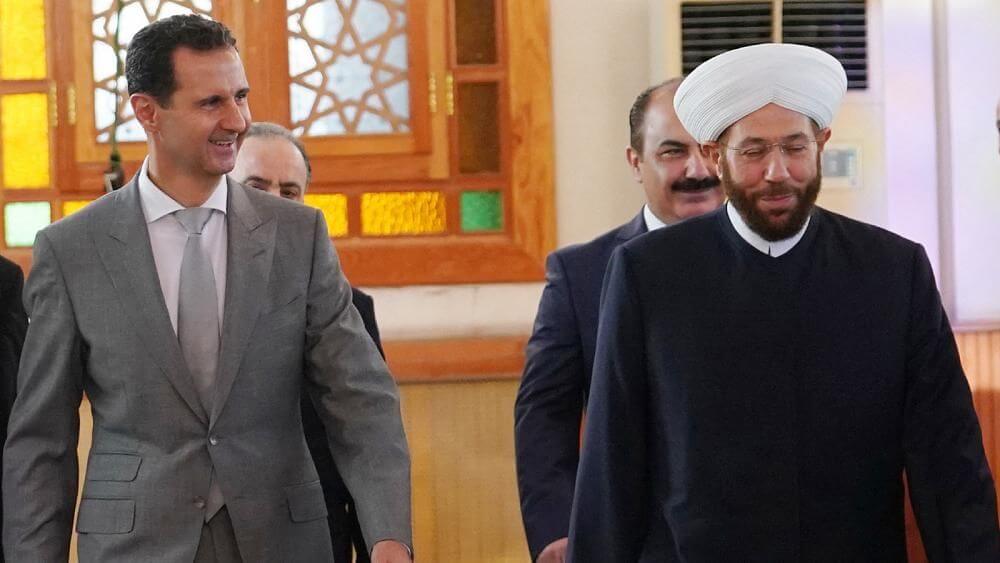Syrian President Bashar al-Assad abolished the country’s highest clerical post via a decree on Monday. The decision will effectively force Grand Mufti Ahmad Badreddin Hassoun, Syria’s highest Islamic authority, into retirement. No reasons were provided by the President or his office for the decision.
The decree boosts the role of Syria’s Council of Islamic Jurisprudence and expands its jurisdiction. Assad abolished Article 35 of a 2018 law that gave the Grand Mufti greater authority over the Council and the Ministry of Endowments and Religious Affairs. This in turn gives more power to the Council and its members, headed by the Minister of Endowments, to carry out religious tasks that were previously performed by the Grand Mufti, including setting the start and end dates of the month of Ramadan and declaring religious decrees, or fatwas.
The 2018 law stipulated that the Grand Mufti would be appointed by a ministerial decree for a period of three years and that his tenure could be extended. The legislation sparked controversy in the country at the time, with critics accusing the government of interference in religious matters and saying it was an excuse to regulate religious discourse.
Hassoun’s term as Grand Mufti ended last month and no decree to renew his mandate has been issued since.
Assad’s decision came days after the Council of Islamic Jurisprudence criticised Hassoun’s interpretation of a Quranic verse during the funeral of famous Syrian singer Sabah Fakhri earlier this month. The Council argued that Hassoun’s interpretation of the verse could lead to “the emergence of extremism” and said it was a “distortion” of the Quran. Moreover, the Syrian Ministry of Endowments stated that Hassoun’s remarks encouraged “despicable fanaticism.”
Observers have thus opined that Assad’s move to get rid of the country’s highest clerical post is designed to “defuse the crisis and correct the situation.”
Hassoun, who was appointed as Grand Mufti in 2005 by Assad, is known to be a strong supporter of the ruling regime since the start of the decade-long civil war in 2011, and has previously made controversial statements in this regard. In 2013, Hassoun encouraged Syrian parents to push their children to fight for the Syrian military by saying that it was their religious duty. The following year he said that his support for the Syrian President was “an enactment of Prophet Muhammad’s commandment.”
Hassoun has also called on the Syrian military to take armed action against the rebels fighting the Assad regime. He has even threatened Western countries, including the United States, the United Kingdom, and France, with suicide attacks if they continued with their military intervention. Moreover, Amnesty International released a report in 2016 accusing Hassoun of approving the execution of an estimated 13,000 inmates in the Saydnaya prison in Damascus over a five-year period.
Syrian President Assad Abolishes Country’s Highest Clerical Post Amid Religious Tensions
Assad’s decision came days after the Council of Islamic Jurisprudence criticised the Grand Mufti's interpretation of a Quranic verse as extremist.
November 17, 2021

Syrian President Bashar al-Assad with the country’s Grand Mufti, Ahmad Hassoun (R) IMAGE SOURCE: MIDDLE EAST 24
